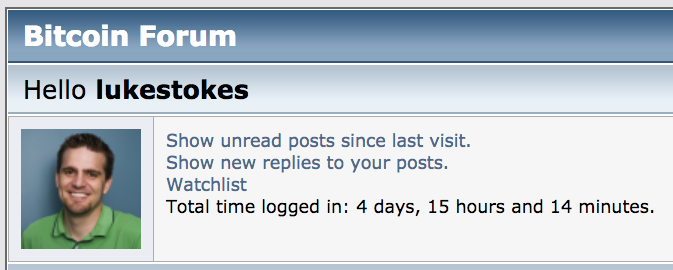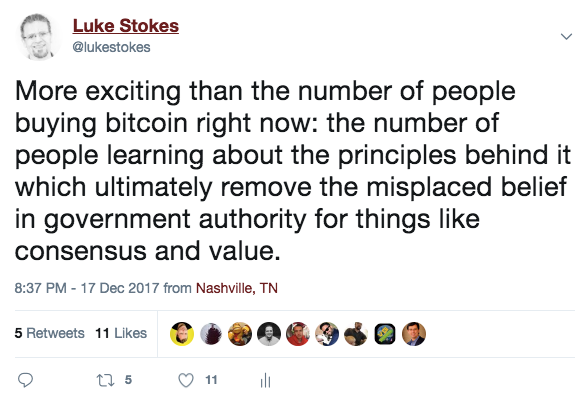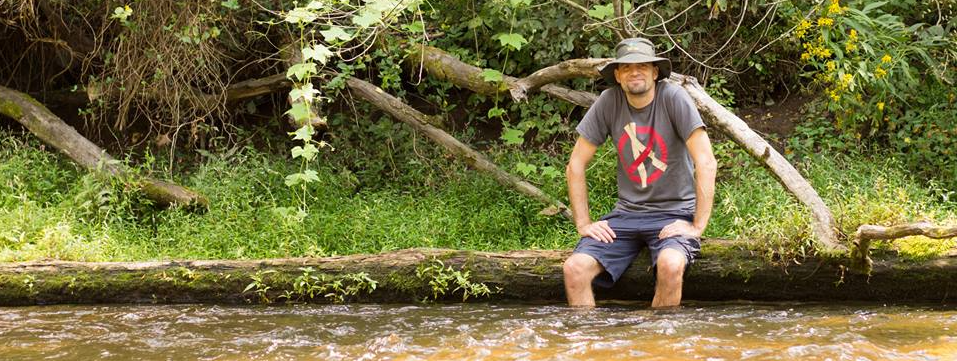As those who follow me know, I've educated people about cryptocurrency since I first learned about it in 2013. Everyone from family, to friends, to acquaintances, to co-workers, to people I've had relational challenges with are contacting me asking cryptocurrency-related questions. I send them to http://understandingblockchainfreedom.com or posts like this which have plenty of links to other posts.
The more people I try to help, the more I realize text and video isn't enough. You can't read a book and expect to be a good athlete. Just learning about the blockchain won't help you fully understand how it works and why it's important.
It's something you have to feel and experience.
As of next month, I've been involved in cryptocurrency for 5 years. During that time, I've made a lot of silly mistakes, and I've had some really great wins. I've put in my time to learn when there weren't many people to learn from. Mostly, you had to read through bitcointalk.org for hours and hours and hours, trying to figure out what was meaningful and what was garbage. I literally read posts for days.

As I've been getting countless phone calls, texts, IMs, and lunch requests lately, I was reminded of how the people I look up to most in the cryptocurrency space are the types of people who just figure things out. They don't have a single source they go to with all their questions. The world is their source. If they have a question, they search for answers first and ask questions of many different individuals later.
On the surface, this may seem ineffecient. Why not just ask the person you know who probably has the answer?
Well, from my perspective, that approach can short-change your education and leave you somewhat crippled in your understanding. When you need to find an answer and you're sifting through site after site and post after post, you will spend a lot more time, but you'll also learn a bunch of other things you didn't even know were important.
The next time you have a question, you might remember, "Oh, I know about that. I skimmed a post the other day which talked about it as I was looking for a different answer." You'll have something no teacher can give you: personal experience.
The first time you send bitcoin to a paper wallet will increase your blood pressure to really uncomfortable levels.
The first time you import or sweep a paper wallet into Electrum, you'll think you did ten things wrong (though it may have only been five).
The first time you're asked to sign a message with your bitcoin private key, you'll think it's impossible.
The first time you use a Ledger Nano S with myetherwallet.com, you'll want to throw your computer across the room and curse at the damn technologists who make everything so hard.
These things start out feeling impossible. You'll be tempted to just ask your tech nerd friend to do it for you.
Don't.
Don't miss out on the experience and how that experience will benefit you in the future. Yes, at first, it'll be hard. Over time, it'll be just like riding a bike, and you'll wonder why everyone else is so confused.
When you get there, you'll be so glad you didn't take a shortcut but instead did the hard work to do your own research and understand from personal experience how things work.
How Will You Tell Your Cryptocurrency Story?
A time is coming when those who invested early in cryptocurrency will be in a much better financial place than those who didn't. For some, that time is already here. How will you explain to your family, your friends, and your neighbors how you got where you are? When they ask you, "Why didn't you tell me about this?!?", what will you say?
Learning about cryptocurrency may be one of the most important skills for someone's financial future, and if you're reading this post on Steemit, you may already know more than most.
Share that knowledge as best you can. Help people find their path to understanding and experience. I'm quite proud of the fact I've been talking about this stuff for a while now and everyone who knows me knows I wasn't accumulating cryptocurrency in secret. I won't have people asking me, "Why didn't you tell me about this?" but instead it'll be more like, "Now I understand why you wouldn't shut up about this."
In closing, my encouragement to you is two-fold:
Be an educator. When you visit your friends and family this holiday season, share what you've learned. Make sure they don't ask you years from now why you didn't let them in on what you've discovered.
Learn by experience and research. Don't just ask questions of people you know, but dig in deep and really try to understand. Don't be afraid of mistakes. They teach you like nothing else can.
For anyone and everyone who has ever asked me a question about cryptocurrency, please understand this isn't directed at you as a correction. I love answering your questions. I truly enjoy it and am honored and thankful every time someone looks to me for help. What I'm realizing more and more is that, in some cases, I'm doing people a disservice if I just give them the answers they want without teaching them how to find them. I want to give out fishing poles, not fish.

Remember, this movement isn't just about digital money. It's about a paradigm shift away from violence-backed, centralized authority to cryptographically-secure, global consensus via voluntary competing ledgers.

I hope my posts continue to be useful to you and help you on your journey.
On a personal note, the family and I are hopping on a plane tomorrow to head out to California to visit family for the holidays. The kids are pretty excited, and I'm looking forward to disconnecting from work and just being free to do whatever I feel like. I'm not sure how active I'll be on Steemit, so if you don't hear from me as much, that's why.

Luke Stokes is a father, husband, business owner, programmer, STEEM witness, and voluntaryist who wants to help create a world we all want to live in. Visit UnderstandingBlockchainFreedom.com









